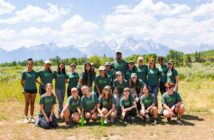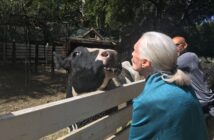11th September, 2021. In the UK we would write 11.9.21. With a jolt I have just realized that this can also be written 9.11.21
Today, I am feeling a bit shaken – shaken with memories. I was in New York at the Roger Smith Hotel, on the corner of 47th and Lexington on that fateful day. I had arrived, the night before, from a glorious event in celebrating Earth Day in Vermont, surrounded by trees, with Paul Winter playing the clarinet.
I woke to start a couple of days of promotion for a new book – a promotion that never happened. I was making a cup of coffee when a colleague knocked rather frantically on my door. “Are you watching TV?” I almost never watch TV when I’m on the road. As I let her in, she hastened to turn the TV on and turned to one of the news channels.
‘It has to be a hoax’ was my first thought as I watched, incredulously, footage of one of the Twin Towers of the World Trade Centre literally disintegrating, flames shooting into the air.
Could it be real? And even as we watched in horror a plane was filmed as it flew directly into the second of the towers and the same scene of destruction and terror was repeated.
Even then I still wondered if it was some horror scene from a Hollywood movie. How could such a thing possibly be happening – in New York? We could in no way comprehend the enormity of what had just happened – it had changed the world for ever.
I have described the following days, when just a few people were with us in the hotel, including the owner, James Knowles, in my book Reason for Hope. We could not leave: All flights were cancelled, and roads in and out of the city were closed. Sounds of traffic were replaced by the sirens of police cars and the clanging of ambulances. There was a haze of smoke and dust in the air, and an acrid smell everywhere.
Today, we all know the details of what happened, including the attack on the Pentagon in Washington, D.C. and the fourth plane forced down in Shanksville, Pennsylvania by the selfless passengers and crew. We have read about the acts of selfless courage of rescue workers as they desperately searched for and freed survivors from the rubble. Later, I was gifted one of the special boots made for one of the rescue dogs as they searched in the still scorching rubble for survivors.
Today, thinking back on that time, 20 years later, several things strike me. Firstly, the huge impact on those who lost so much, and the community that arose as a result. I also think of the impact on security, on the traveller, and our sense of how the unbelievable became a reality. For 9/11 was followed by the disastrous wars in Afghanistan and Iraq, and a new era of conflict worldwide.
So, as I sit here in the house where I grew up, I am reflecting, as usual, on hope for the future. It was in the room where I am sitting now, the sitting room, that we listened to the BBC announce at the start of the 9.00 news that Britain had declared war on Nazi Germany – WW2. I was only five, too young to appreciate all that it meant – but it was the tension of the grown-ups, the sense of dread, that forever shaped my views on life and war. After all, we had only recently begun to recover from WW1. Even now when I hear the chimes of Big Ben – that always preceded the news – I feel an involuntary twinge of – well, almost fear. All these years later.
For a while it seemed inevitable that Britain would be defeated. When nearly all of Europe had been defeated or surrendered, we were not prepared for war – what hope had we against Nazi Germany’s armed forces? It was the courage of the British people who refused to give in, the courage of the air force and the navy and the army. The spirit of resistance sparked by the stirring speeches of Winston Churchill. It was this that prevented Europe from being overrun by fascism.
Is world peace EVER going to be a reality? Sadly, likely not in our lifetimes. But that does not mean we should give in to despair. Mahatma Gandhi once said, “When I despair, I remember that all through history the way of truth and love have always won. There have been tyrants and murderers, and for a time, they can seem invincible, but in the end, they always fall. Think of it-always.”
Moreover, I truly believe that the number of good and decent people in the world form by far the greatest percentage of the world population. And while there are those who are ruthless in their desire for ever more wealth and power, a great deal of harm is done simply through ignorance or the desperation of poverty or by those who have been misled.
If not for the pandemic, I would be visiting the site of the Twin Towers on the International Day of Peace, September 21st, later this month. As often as I can, I come to pay my respects to the fallen and Survivor Tree, the Callery Pear tree who was rescued as a broken stump with only one main root and one main branch after being buried under the rubble of one of the Twin Towers. Survivor tree was miraculously brought back to life thanks to the dedication of several wonderful humans. You can read Survivor Tree’s story here.
Survivor is a symbolic reminder of nature’s resilience. And we too are resilient. We too can survive “the slings and arrows of outrageous fortune,” as Shakespeare puts it. We can work together to make the world a better place. Perhaps there can be peace one day if we learn from our past and commit to compassionate action for our futures.






